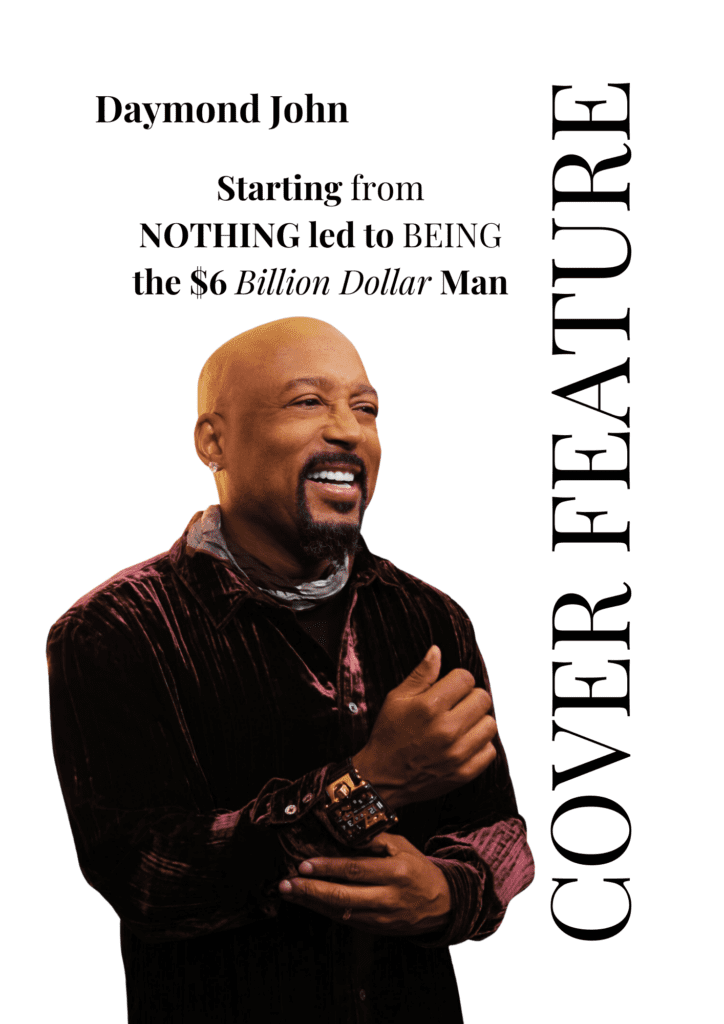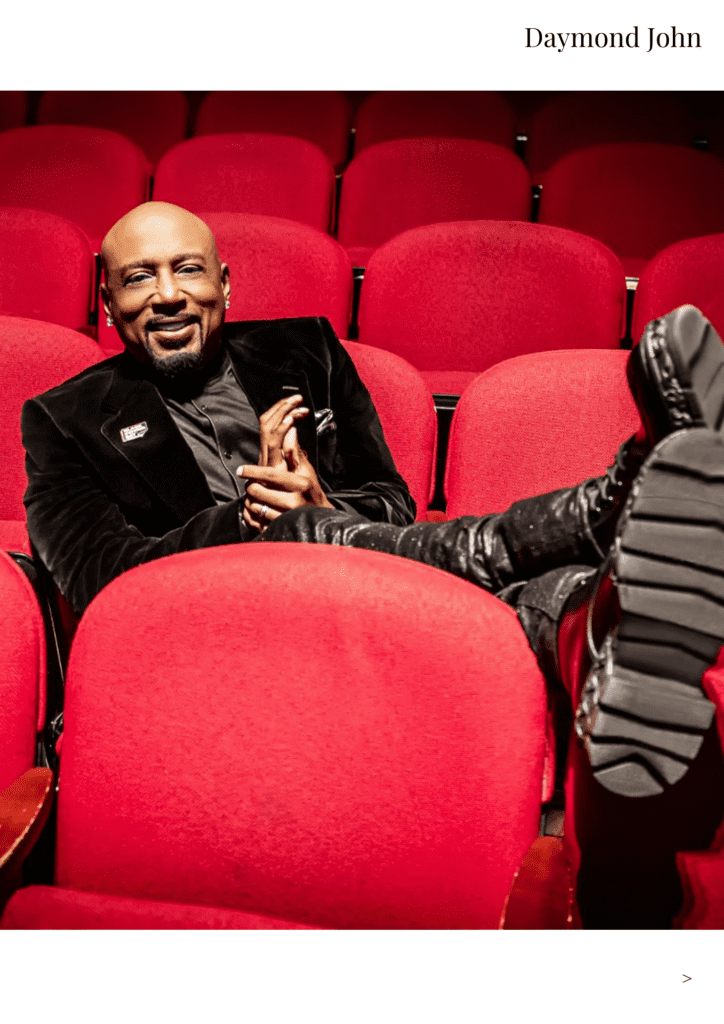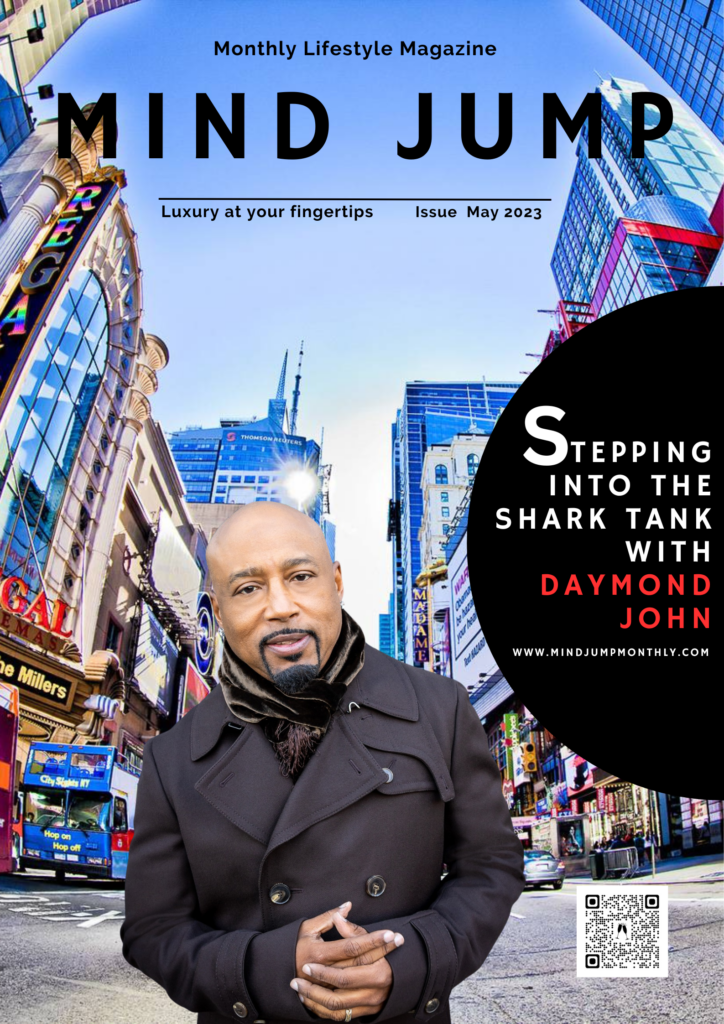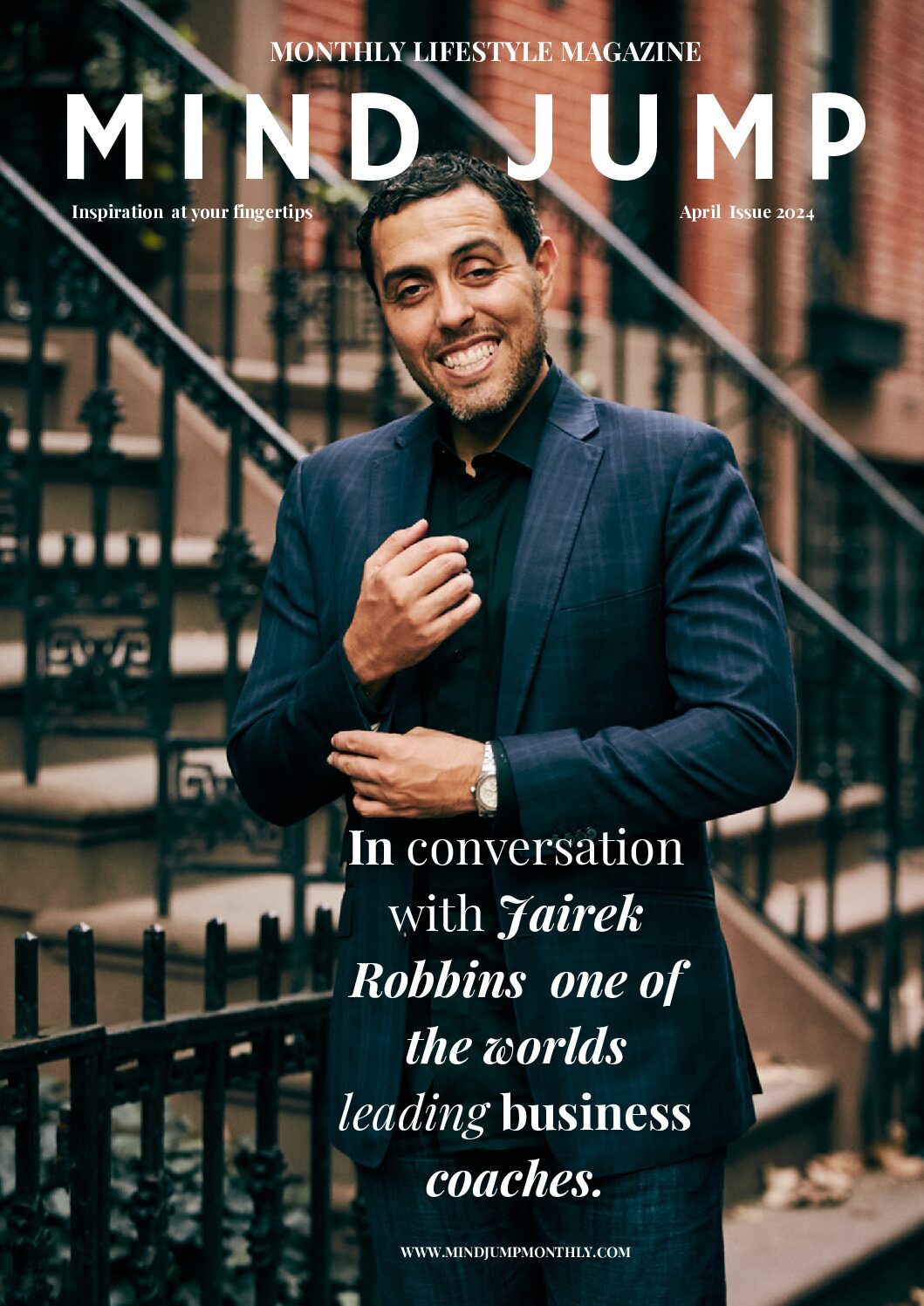As an entrepreneur, mindset is key to finding success. Can you tell us what you do to keep your mindset and wellbeing in good working order?
The first thing I do is start and end my day by saying out loud my five-week, five month and five-year goals. It puts it out into the universe where we can all hear it. Lately, I have been really focused on work/life balance. I am making sure I find time for the things that are important to my life, like health, wellness and family. I also prioritise the things that make me feel good like fishing. All that allows me to have more clarity with my business mind and puts things in perspective with a clarity I have not felt since my teens.

Your background is in fashion and branding – how have you seen the industry change over the years, and what do you think are some of the most important qualities for entrepreneurs looking to succeed in that space?
Economies and industries are always changing, but will always stay true to who you are. The biggest change I have seen is the Daymond who used to have to go onto music video sets or stand on street corners to sell hats in the early 90’s could probably be just as efficient today using social media. The socialisation of e-commerce allows your phone to be a computer, a store front, a cash register, and a database. It is so important for entrepreneurs to realise that that is in front of them today and adapt to the current ways to do business that promote efficiency. Even if you don’t do it, surround yourself with people who understand it because you need to know how today’s world works so you can operate within it.

Are you a fan of the 5 am club and what does your morning routine look like?
I stay up late and get up early. I have never locked myself into one time, but have never had an issue knowing I have to wake up early and get going. I get into my goals right away and take immediate ownership of my day. I try to be up at least an hour before I check email, which allows me to be on offence. When you check emails right away, you will find yourself responding to other people’s needs, rather than taking the steps to make sure you are getting your needs met.
You started work at the age of 10 after your parents divorced. Can you tell us a little bit about your upbringing in Queens and the early struggles?
If I struggled, I was not aware of it. My reality was mine, just like yours is yours. I grew up with an incredible mother who believed in me, from a young age when she promoted education to when she let me convert our living room into a sewing room.
Did the name FUBU have a particular meaning? What did the acronym represent?
I noticed that there were no clothing lines out there that spoke directly to the hip hop community. And to us, hip hop was not about race or gender, it was a movement. So FUBU was intended to represent that, and it means For Us By Us.

You’re well known for your role on Shark Tank – what are some of the most important things you look for in a pitch, and what advice would you give to aspiring entrepreneurs who are trying to make their case on the show?
Of course, I am interested in sales, the vision, the numbers and the presentation. However, I am looking at the person as much as I am the product. I want to get a sense of who they are and what they are like to be around. Investing in entrepreneurship is investing in the people behind it. They might have the best product in the world, but if I don’t connect with them as a person, it is going to be hard to do business with them.
My advice is knowing your business. Know what it is, know what it isn’t and know what it can be. Also, do your homework. Not so much on the Sharks, but on yourself. What kind of questions are we going to ask? What are those answers going to be? What is my cadence and tone in giving those answers and when are my cues to volunteer information.
As an entrepreneur, how do you balance the need to take risks with the need to mitigate potential losses? How do you decide when a gamble is worth taking?
You’ve been successful in a variety of industries – fashion, branding, media, and more. How do you approach learning about new fields, and what advice would you give to other entrepreneurs who are trying to expand their reach beyond their core expertise?
What does success look like to you?
Success shows itself in so many ways. Where I found success when I started FUBU is different to how I find success as an author. My success as a person varies from how I measure success in business. Each area of your life can have different success metrics, and you should never be afraid to change what success looks like to you. Since turning 50 and having my cancer scare, success to me looks like having a work/life balance, being a good dad, being a good husband, creating opportunities for small business and teaching financial intelligence to the millions of kids who need to learn it.
What is the biggest lesson you have learned?
It is the power of broke, which I turned into a book and became a New York Times Best Seller (shameless plug Ha). I learned that throwing money at ideas doesn’t increase your odds for success, and can also limit your creativity. I learned that if you approach things as if you have no money, you can find a lot of power in it, thus the power of broke. And that it will open your areas of creativity in a way that is essential for success.
What are your greatest dreams for your children’s future?
Financial intelligence. It is my mission for kids to learn financial intelligence and be better equipped to handle real life when it comes to money. This is not to point the finger at schools. It is not about that. It is about finding ways to teach and ways to learn beyond school. And this is especially important to me within the Black community, where it is needed the most.
And what book would you recommend to our readers and why?
You mean other than Little Daymond Learns to Earn? In all seriousness, Moneyball by Michael Lewis and The Art of Learning by Josh Waitzkin. Moneyball because it shows you how hard it is to think differently and that people who live within the societal norms will be your biggest challenges when you do that. The Art of Learning because it teaches so much about how to approach adversity and that the greatest learning experience life can offer is the ones you learn when you lose.

6x short & sweet Q&As
What would be your superpower?
Clock stopper
How do you like to spend your free time?
Fishing! Or tea parties with my seven-year-old Minka.
What does the perfect day look like?
Any day I get to have a tea party with my daughter!
What is your biggest regret?
I get that question all the time related to Shark Tank and the truth is I don’t have any. I learned you win some, you lose some. And as I get older, I have been able to use that same mentality in all areas of my life.
What are you most proud of achieving?
Oh, let’s see…Being a good son, being a dad to three, being a good and present husband, learning to put my health first, losing 40-pounds, beating cancer. Take your pick!

